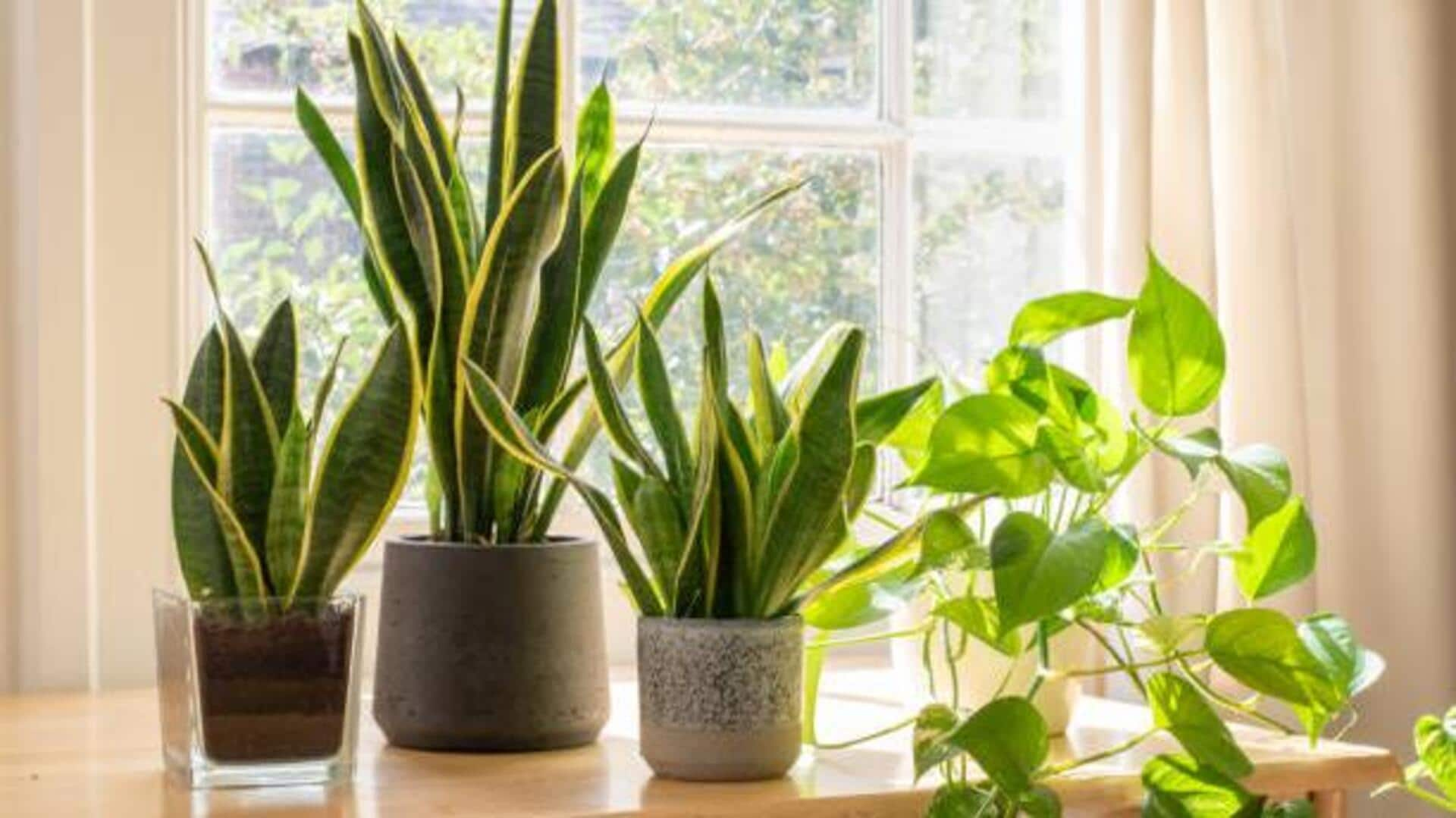
How to care for indoor plants during winter
What's the story
Winter can be tough on plants, particularly those kept indoors. The cold weather and dry air can affect their growth and health. However, organic methods can help keep your indoor plants healthy during the winter months. These natural techniques not only promote plant health but also keep your living space free of harmful chemicals. Here are five practical organic tips to keep your indoor plants thriving this winter.
Tip 1
Use natural fertilizers
Natural fertilizers, such as compost or worm castings, provide essential nutrients to indoor plants without the use of synthetic chemicals. They enrich the soil with beneficial microorganisms that promote healthy root development. Applying these organic fertilizers every few weeks can help maintain nutrient levels in the soil, ensuring that your plants get what they need to grow well during winter.
Tip 2
Maintain proper humidity levels
Indoor heating systems often make the air too dry for plants in winters. To maintain proper humidity levels, keep a humidifier in your plant area or place water-filled trays near them. Alternatively, misting plants lightly with water every day can also help. Proper humidity prevents leaf browning and keeps your plants looking vibrant.
Tip 3
Ensure adequate light exposure
Shorter daylight hours in winter can affect plant growth. To make sure your indoor plants get enough light, place them near windows that receive direct sunlight for a few hours every day. If natural light is not enough, consider using grow lights to give the required illumination without affecting the plant's health.
Tip 4
Monitor watering practices
Overwatering is a common mistake during winters when plant growth slows down. It is important to adjust watering schedules according to each plant's needs, checking soil moisture levels regularly before watering again. Using pots with drainage holes prevents waterlogging, which could lead to root rot.
Tip 5
Prune dead leaves regularly
Regularly pruning dead or yellowing leaves helps indoor plants focus their energy on new growth instead of maintaining unhealthy foliage. This simple task improves air circulation around the plant, while preventing potential diseases from spreading through decaying leaves. Using clean scissors or pruning shears ensures minimal disruption to the plant's overall structure.